Message from Neil Armstrong (240kb PDF file)
read out at Tidbinbilla, 20 July 2009.
40th anniversary of Apollo 11
July 2009
Greetings
A selection of the greetings on display at the 40th anniversary luncheon
Message from Neil Armstrong (240kb PDF file) |
US Chargé d'Affaires Dan Clune reads Neil Armstrong’s message at Tidbinbilla, 20 July 2009. Thanks to Geoff Crane for most of this footage. It runs for 8 minutes – on Vimeo. (It’s also available here as a 47MB mp4 video file.) |
From Bruce McCandless II: Apollo 11 EVA Capcom Bruce McCandless II sent this video greeting to all involved in bringing the Apollo 11 lunar surface TV to the world. Click the image to open a 21MB mp4 video file. |
From Fred Haise: Apollo 13 LMP, Fred Haise, sends these greetings on the Anniversary – and includes a special thanks for the support during Apollo 13. Click the image to open a 29MB MPEG4 video file. |
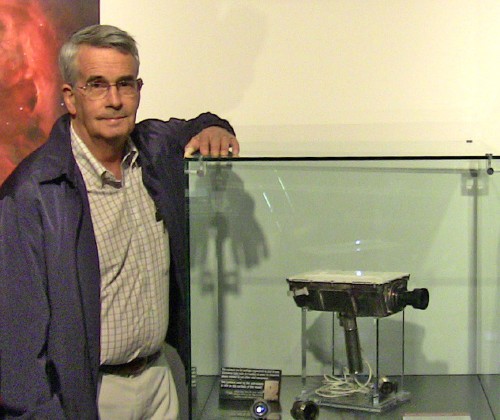 |
From Richard Nafzger: To all my friends in Australia: |
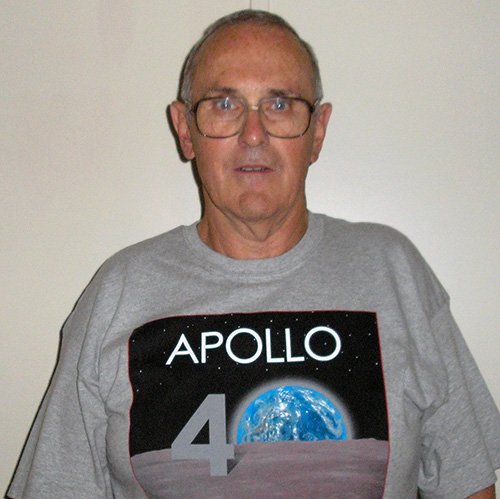 |
From Tom Sheehan: My best wishes to fellow members of the outstanding team that accomplished one of the greatest feats of modern history; humankind’s first landing on earth’s moon. We can all be proud of this accomplishment and the dedication, hard work and sacrifice of every team member and our families. As a network-oriented person in the Mission Control Center / Houston, it has been my pleasure to work with all of you that maintained contact with the spacecraft and astronauts and acquired the data so important to performing the MCC role. My understanding of your importance and dedication to achieving our goal has only grown over the years as I’ve come to know many of you on a personal level. Thank you individually and collectively for all that you have done. Tom Sheehan |
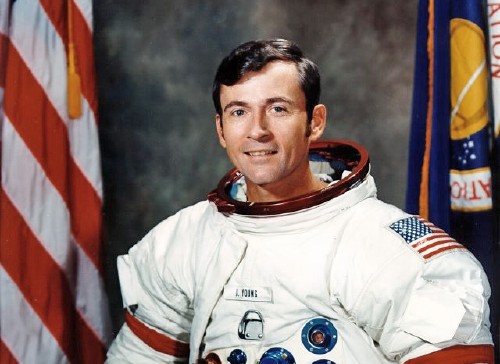 |
From John Young: Congratulations to all the great people who support the Apollo 11 TV for the first lunar step on that memorable first EVA. It was a great event. You can all be very proud of the contributions you made on that day 40 years ago. You supported not only the first lunar landing but the entire Apollo Program |
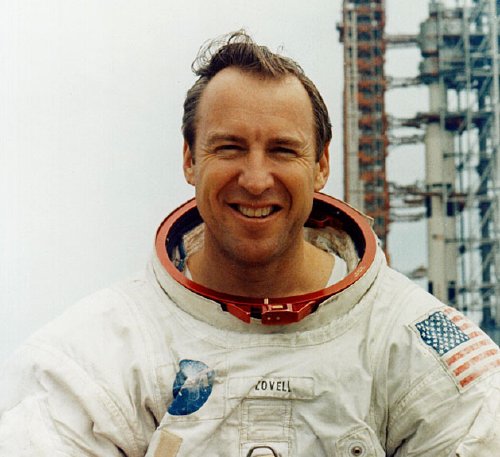 |
From Jim Lovell: It doesn’t seem possible that 40 years have passed since the Honeysuckle Creek tracking team passed the word that “The Eagle Has Landed.” |
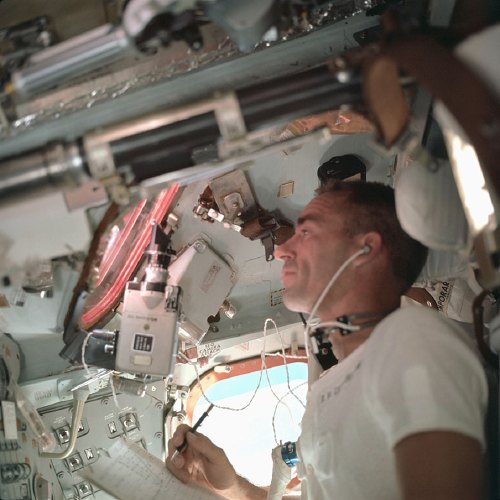 |
From Walter Cunningham: Hello, to all our Aussie friends. In the words of former Prime Minister John Gorton, your committment to “…the chance of dangerous adventure” reminds me of Texans. We could not have accomplished the greatest voyage of exploration in history without you. From leaving the lights on in Perth to receiving the first television pictures from the Moon, Australia has always been a most reliable partner. |
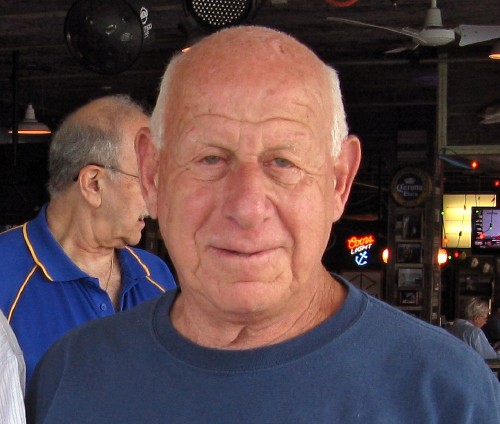 |
From Ed Fendell: To former employees of the NASA Tracking Stations in the Canberra, Australia area, their family members, friends, and dignitaries. Many years ago, for some long forgotten reason you went to work supporting the U.S. Manned Space Program. Each one of us ended up involved in working on a historical event, which we will always remember. Somehow, we ended up in the right place at the right time. Every one of us has a different story about how we got there. The thing that is incredible about the majority of the stories is that the events leading up to this wonderful adventure were not planned, but you all ended up supporting the landing of the first Man on the Moon. As I look back to that period of time, I remember how everyone involved, no matter what their assignment was, had the attitude that every thing they did would make a major difference on whether the landing took place successfully. Most people in the world do not realize the different types of people and the different jobs that were performed to make this event happen. They ranged from astronaut, flight director, flight controllers, tracking stations engineers and technicians, secretaries, travel agents, and even janitors. Everyone that supported the Apollo program had some impact on its success. Reflecting back on my first Australia experience on Gemini 4 at Carnarvon, and my stop to brief the Canberra Tracking Personnel en route to Carnarvon to support Apollo 501, it is difficult to remember the names of all the great people that supported our programs who I have counted as friends over the years. I do know that every one who supported us had the "CAN DO ATTITUDE", which is why we were so successful. I would love to be with you all, to shake each and every hand and thank you personally, but that is impossible. In lieu of that, I ask you all to drink a toast to Apollo 11, and to yourselves, for the excellent work you performed in making this world historical event happen. Thank you for everything, Ed Fendell |
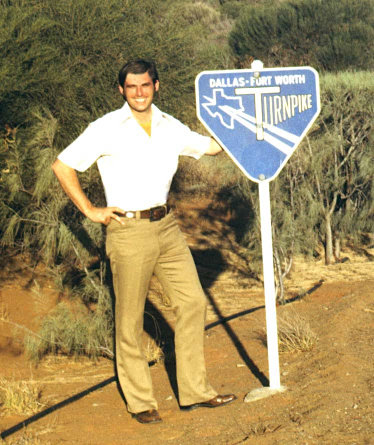 |
From Bob Burns: As you can well imagine, I just wish I could be there with all of you to share this moment in history. It is hard to believe that 40 years has passed, and sadly, no one has made a serious attempt to return to the moon. I realize that NASA is currently working on a lunar exploration, with the possible goal of establishing a lunar base, but I'm not holding my breath while they are going through the motions. I just hope some of us might still be around to see it, if it actually happens. If I sound pessimistic, I guess it is because we are seeing things happen here that I wouldn't have believed possible a few years ago. Anyway, enough of the gloom. I'm sure the good folks of Australia will be well represented at Canberra, along with some lucky ones from the USA. I was fortunate enough to work with the Carnarvon, Honeysuckle Creek, and Tidbinbilla station personnel, and consider my visits with the Simulation Teams the highlight of my 34 years with NASA. We always knew our work was cut out for us because the Australian stations had the sharpest and best prepared personnel in the MSFN. Sometimes I felt I learned more from the station personnel than any knowledge that we may have imparted during the simulations. I knew when we left Australia, that I was always better prepared to work other stations in the Network. One thing always stands out in my memories of visits Down Under, was the great sense of humor we would encounter. You could count on some humorous prank to be played, and this helped to ease the tension that naturally developed after some rather intense exercises. I could usually count on John Saxon to be involved in these escapades when we were at Honeysuckle Creek. Oh yes, the parties after the Sims, with some folks trying to see just how well the Sim Team could handle their alcohol was another interesting time. Hopefully, I didn't embarrass myself or the team during these "exhibitions". I'm sure I can speak for many of our guys about our appreciation of the beautiful Australian ladies. It made the long trip worthwhile. The era of the mini-skirt was definitely a time to remember, and the Aussie lassies raised this fashion statement to new heights. ☺☺☺ That sort of thing doesn't bother me any more.................... of course, it doesn't bother me any less either!!!! Even though I can't be with you all in person, I'm there in spirit. Have a great 40th Anniversary, raise a cool one for me. Maybe Rob Dey could do the honors for me? |
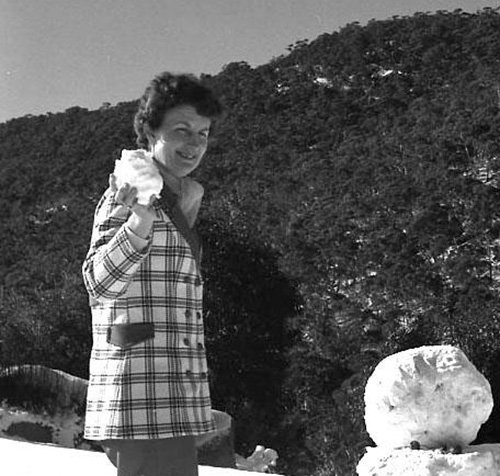 |
From Judy Wise: Dear "Old" Friends and Colleagues Although I won't be there with you in Canberra to join in the celebrations next week, I am writing to wish you all a very happy time. Memories of our little demountable office called TSS at Honeysuckle with colleagues Hamish Lindsay, Jim Holland and Lisa Jensen, and the compactus (where people nearly got squashed) come flooding back. What a lot of water has flowed under the bridge since then!! How privileged we all were to be part of such an historic occasion, not to forget viewing proceedings on a COLOUR TV for the first time ever! The nearer we get to the date, and the more emails I read, with feeling the excitement mounting, makes me all the more disappointed that I won't be there to join in. No doubt there will be plenty of coverage in the news, so I will have to be content with that, and will be there in spirit. Cheers to you all Judy Wise |
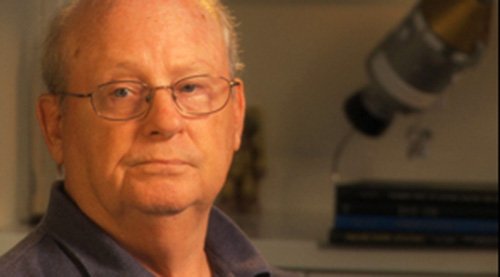 |
From Mike Stevens: Once in a great while, an event occurs that alters the path of human civilization forever. July 20th 1969 was one of those moments. The six landing missions of the Apollo Program, lasting from 1969 to 1972, were the first and last times that man visited the lunar surface. Thus the Apollo 11 mission is very appropriate for a 40th anniversary and Apollo Program celebration. You have chosen to involve many who were deeply involved in the programs, and I feel honored to be a part of this celebration. As the NASA Representative from January 1983 to February 1986, I was fortunate to meet and work with truly dedicated people. I would like to use this opportunity to congratulate all those who were involved in the Apollo Program from Honeysuckle Creek, Tidbinbilla, Carnarvon, Parkes, Deakin and station telecom personnel as well as others such as the budgeteers and Fishwyck facility people who did such a great job and those others who have departed us. Without the Network of trackers all over the world there would probably have not been an Apollo Program. I also understand that the TV people in Australia have worked their magic by finding "Lost" TV tapes and been involved in the recent gathering of the TV information from decades ago in ways unimaginable. I sincerely hope the Australian facilities will continue to be in place to support NASA’s new endeavors to the Moon and Mars. You should be proud of the early missions to mars that you have been supporting and helped to ensure their success. Everyone in NASA knows that without the people in the trenches these missions would not have been the successes they have been and will continue to be. Good luck to you all and thank you for all your courtesies to Beverly and I while we were stationed in your great country. Your colleague and friend Mike Stevens |
|
From Peter Pockley: (From Dr Peter Pockley, Head of Science Programs, Producer and On-Air Host of the ABC's extensive “live” radio broadcasts of all Apollo missions –now still reporting on science, largely through Australasian Science monthly magazine.) I was kindly invited to be with you today but had already committed to a parallel celebratory function in Sydney with many members of ABC programming and technical staff who worked on the Apollo programs, timed to coincide with the time of the first moon walk. A significant part of my life in broadcasting was devoted to bringing the dramas of the Apollo missions, minute-by-minute, second-by-second, to a large audiences of Australians nationwide and internationally through Radio Australia. From relatively small beginnings with Apollos 8 and 9 we extended our sources of original audio with Apollo 10 and further still with Apollo 11 when we mounted probably the most complex “live” broadcasts in ABC experience at the time. While the TV links ultimately took centre-stage, and rightly so, radio provided a flexibility, depth and extent that TV could not rival. With the experience of Apollo 11 under our belt, radio became king of media coverage of the near-disaster with Apollo 13. For making all this possible I pay tribute to the magnificent and ever-reliable service by the technical expertise of NASA, the then PMG’s Department and other Australians who worked at the key nodes of our “live” umbilical links to Mission Control and via them to the astronauts. For example, our 24-hours-a-day access to the Voice of Apollo circuit, together with detailed flight plans in hand, enabled us to cross out of the ABC’s regular programs to our dedicated “Apollo Studio” in Sydney at a moment’s notice in order to capture and broadcast key stages of the drama and to foreshadow accurately what was coming up next. We broadcast right through the night preceding the moon landing at 6.17 am, 21 July Australian Eastern Time and were not caught short when Neil Armstrong decided to start the moon walk several hours earlier than in the flight plan. While we had a panel of scientific experts in the studio for providing contextual commentary on every conceivable aspect of the technology and scientific and medical aspects, we also needed to bring others in by telephone links. I gather that one of our panel, the distinguished Professor of Geology John Lovering is with you today. As we say in our trade, John was “great talent”. In those days, “talk-back” radio had barely surfaced as a popular medium but when a station wanted to interview someone “live” to air a seven-second delay had to be interspersed between the start of an interview and its broadcast to enable dropping of any profanity or perjury that might be uttered by a distant party. This would have been impossible for us when the rapid action in space had already moved on and, once TV pictures became available which had no such restriction, we had to broadcast simultaneously or not at all. Our case was accepted and there were no delays on our telephoned commentaries. I gather that our use of the telephone was a “first” in Australian radio. In terms of broadcast durations, ABC radio outstripped TV, both ABC and commercial, by a factor of several times. I believe, too, that, being a more imaginative medium, our radio coverage engendered countless imaginary journeys through space to the moon. For making this possible, once again I pay tribute to all of you, the technical wizards, for the critical Australian contributions to the Apollo broadcasts. Peter (Hear some of Peter’s Apollo 11 broadcast.) |
From Derryn Hinch: Australian broadcaster and journalist Derryn Hinch described the Apollo 11 launch live on Australian commercial radio. He sent this video greeting. Watch a 27MB Quicktime movie. |
More to be added here…